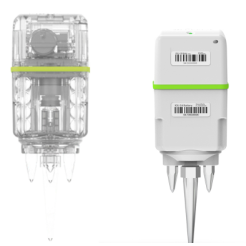Lead Free HASL PCB
Lead Free HASL offers a corrosion-resistant finish that ensures long-term solderability.
Product Description
Damage from additional thermal deviation
Coplanarity issues due to pad-to-pad coating thickness variations
Potential coplanarity issues with HASL finishes
Stencil spacer issues are related to differences in coating thickness and mushroom cap profile (coating) on small pads.
The difference in solder coating thickness for lead-free HASL coatings is typically about half the thickness of tin-lead HASL coatings. In this finish, coplanarity is also good. Modern HASL lines are designed to provide operating conditions consistent with other equipment in modern cardboard workshops to avoid heat and smoke problems.
The solder coating profile is defined by the amount of solder and surface tension left on the pad after the board has passed through the hot air knife. The coating tends to thicken on smaller pads due to surface tension.
Due to the higher surface tension of lead-free solder, the coating formed in the HASL process is thin and uniform compared to tin-lead solder formed under similar conditions.
The coating thickness can be checked by XRF (X-ray Fluorescence Spectroscopy) technology.
Compressive stress is the driving force for whiskers (filaments protruding from the surface of a board with tin as the final finish).
Lead Free HASL offers a corrosion-resistant finish that ensures long-term solderability.
| Application area: Security | Product feature: Peelable S/M |
| Layer: 2 | Surface treatment: Lead Free HASL |
| Material: FR4 | Line width/Line space: 0.325/0.305mm |
| Thickness: 1.6mm | Min hole φ: 0.75mm |

For more details about PCB Design please contact: www.chanyee.cn




